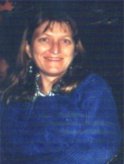Since my sister's sexual assault I had been thinking about my friend, Hannah's, parents and the issue of trauma. Hannah's father was Lithuanian, a clever man who was one of the few pre-war Jewish people allowed to study medicine. Tatiana, Hannah's mother, was Russian and grew up in Berlin. She was also a brilliant student and wanted to study medicine, but circumstances and the outbreak of the war meant she was groomed to take over the family business.
At first, Tatiana had been baffled by the rise of anti-Semitism. She had always been accepted at school, but this all began to change and she was forced to flee with her mother and sisters to the border of Russia and Kazakhstan. After the war on their return to Europe, they discovered that the Jewish population had been decimated. As a result, relationships were accelerated in a way that didn't happen prior to the war. I remember Hannah telling me that she'd had an amniocentesis when she was pregnant with the children and her mother had been appalled. "Because," she'd said, "After the war, any child was a blessing."
Initially, Hannah never knew what had happened to her father during the war, although she had always had her suspicions, as whenever a war movie appeared on TV, her father would get up and walk out of the room.
Later, she discovered that his first wife and daughter were taken to Auschwitz where they were murdered while Hannah's father was interned in a concentration camp, in Lithuania.
Around the same time that she discovered the truth about her parents, Hannah had been planning a trip to Europe and her mother urged her to go to Berlin. Hannah didn't really want to go to Germany, but Tatiana explained that Berlin was different before the war, and that she had wonderful memories of that time. I found it interesting that Tatiana had come to terms with the trauma to be able to consider Berlin in a positive light. Hannah went to Berlin, but her experience of Germany was coloured by her recent discovery of her parents' past. Every time she looked at a German person her parents' age, she found herself wondering if they were somehow implicated in her parents' persecution and the deaths of her relatives.
At the time, I discussed the issue of guilt and responsibility with Hannah and told her about a documentary I'd seen about the reactions of ordinary Germans, who had lived through the war. There was an interview with a man who had lived across from the station, where Jewish people were herded onto trains destined for the death camps. I wondered what I would have done if I'd been in that man's position.
We discussed the latest findings on post-traumatic stress disorder, how going over trauma only makes it worse, and I wondered if the old approach of letting things be and living in the present was the best. On the other hand, some survivors of the war succumbed to alcoholism and suicide, but the vast majority didn't. Years ago, I was adamant that you must talk about these experiences openly, understand them and empathise so that people never forget. Now I felt that you mustn't pretend they didn't happen, but reliving it constantly was too traumatic.
The writer, Primo Levi, who also survived the Holocaust, was disturbed by people's desire to forget what had happened. He sought to keep it alive in his writing, so that it would never happen again. But Levi later committed suicide. Before his death, a friend had asked him if his depression was due to what had happened in the camps. Apparently, Levi denied this, so I don't know whether his depression was biochemical, an accumulation of stress or an awareness of the worst side of human nature.
I remember Hannah talking about the higher incidence of psychological problems amongst children of Holocaust survivors. I found this quite troubling and had never broached the topic before because of its sensitive nature. My husband, Jack, was listening at the time and he began to fidget. I could sense the tension in him, his anguish for Hannah, his uncertainty as to how to help.
Thinking about all of this now, I remember talking to my sister after she had been sexually assaulted. I told her about a garden created by the women of Kosovo. The women had been raped as part of the ethnic cleansing campaign, and in the aftermath, well meaning westerners had brought in armies of counsellors who had tried to encourage the women to speak about their ordeal. The reasoning behind this was that speaking about the trauma was preferable to bottling it up. This was fine, of course, unless continually going over it simply reinforced the trauma. In fact, the approach did very little for the women of Kosovo, as speaking about sexual assault wasn't part of their culture. Eventually, someone had the bright idea of encouraging the women to create a garden. Apparently, working together on something positive had done more good than talking, and perhaps this was already understood by generations that had lived through previous wars. There must be a balance between speaking out and continually revisiting the memories.
Perhaps also, the physical nature of the activity itself assisted the healing process: its distracting, pleasant features along with the bonding and sense of community between the women. Or, maybe working in harmony with nature had an atavistic or innate, calming mechanism. Yes, time heals. I knew that my sister would have the courage to move forward as I remembered an image of her as a child; a tiny girl standing stoically at the beach near our home, a wave breaking unexpectedly over the rocks, the men who were fishing knocked to the ground, but Holly still standing.
Names have been changed





